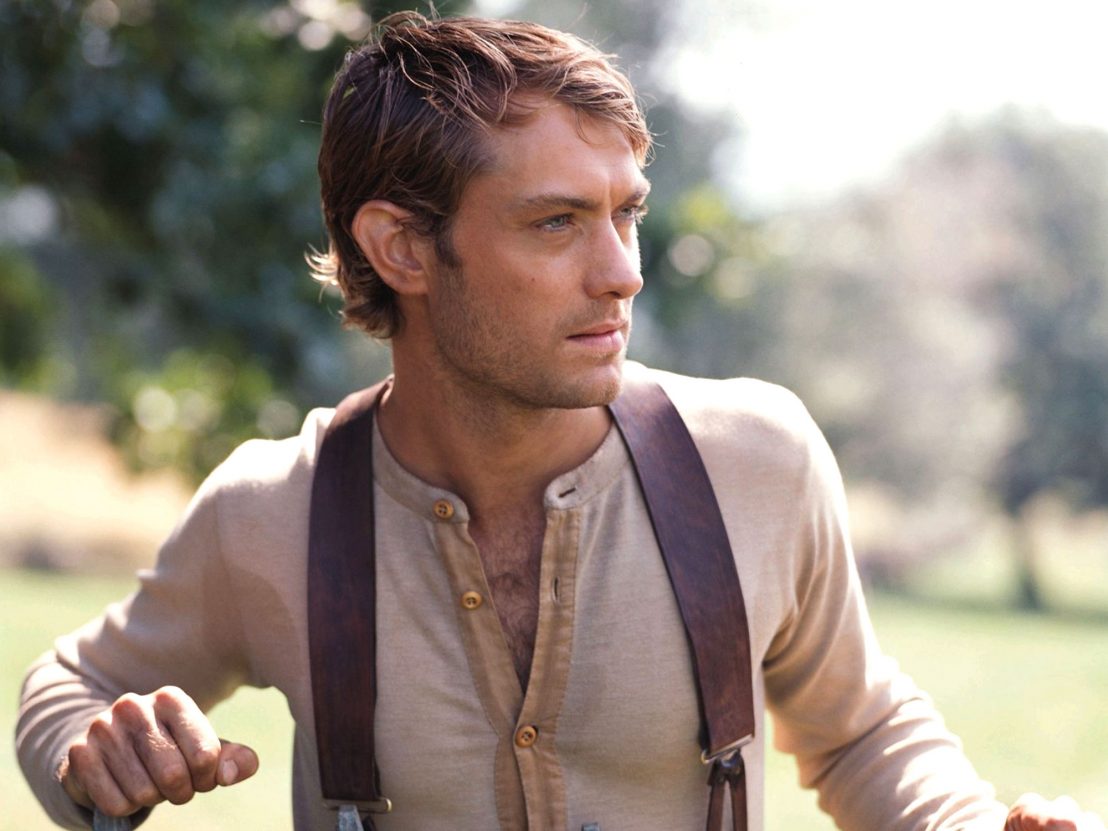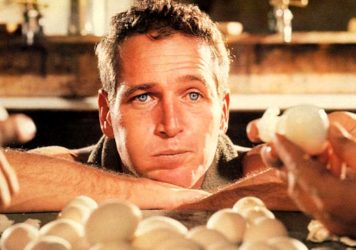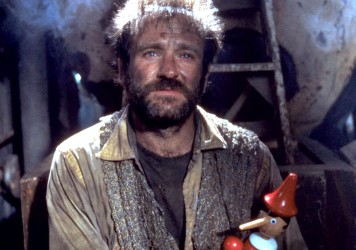
Based on Charles Frazier’s 1997 historical novel, Cold Mountain is an old-fashioned war epic whose gripping tale of two lovers torn apart by battle leaves a lasting impression. Directed by the late Anthony Minghella, it earned Jude Law his second Oscar nomination for his portrayal of American Civil War deserter, WP Inman.
When considering an actor and their defining onscreen appearances, Jude Law has a multitude in contention; with Sherlock Holmes, The Talented Mr Ripley and A.I. Artificial Intelligence to name a few. However, it’s the role of Inman which strikes arguably the deepest emotional chord. His tender simplicity, impassioned endeavour and unbridled resilience combine to form an all-American archetype, a character who echoes throughout the history of cinema itself. Cold Mountain is a harrowing experience and Inman must endure a cascade of cut-throat retribution, mixed with the forging of unstable relationships – yet it’s precisely these experiences that shape our hero on his cross-country quest.
Whether he’s throwing himself into battle to save a doomed comrade, confronting the moral disturbances of a religious minister or protecting a widow and her baby from starvation and brutality, Inman is always at hand to hold a light in these dark times. Established as a child of loss, with both his parents long since deceased, Inman is a sympathetic soul gliding through a world of pain. With social anxieties and moments of visible frustration, he still manages to enrapture the preacher’s daughter Ada, played with ghostly intensity by Nicole Kidman. This, it’s implied, may originate from his overt kindness and caring nature.
In one of his most powerful scenes shared with Ada, Inman beckons a trapped dove out of the local church so that the day’s sermons may resume. Admittedly this initial moment of magnetism between Ada and Law’s soldier feels a little rushed, but as the story unfolds you begin to wonder whether their mutual attraction is a by-product of this difficult period in America’s history.
Law’s ability to externalise his character’s vulnerability is testament to his versatility as an actor. Given little dialogue to work with, he skilfully articulates Inman’s sense of isolation through subtle mannerisms and facial gestures. When he does finally hold down a conversation, the words flow from him with a poet’s touch. What begins as, “I work wood… mostly, work wood,” in response to an enquiry about his livelihood becomes a lyrical rumination on war, “I imagine God has grown weary of being called down on both sides of the argument.”
At Ada’s request, Inman returns home to Cold Mountain to soften her anguish. This requires him to negotiate a series of waterways, forests, mountain ranges and starvation, all while avoiding capture by the ruthless home guard. This was the second character Law embodied for Minghella, and in the director’s epic vision Inman’s humanity is further explored in the historic Siege of Petersburg, where he singlehandedly drags his fallen colleagues from the battleground so that their bodies can be returned home safely. While performing this selfless act, Inman is shot down by a rival gunman and finds himself hospitalised, setting in motion his discovery of Ada’s pleading letters. Here, Inman’s courage is tested and rewarded at the same time.
Faithful when targeted by a seductress, tenacious by nature and a dab hand at mountaineering, Inman is the complete package when it comes to protagonism. As he wanders back through North Carolina’s titular landscape, bearded and increasingly brittle, Inman becomes one of the rare heroes in modern cinema to meet their maker. Another example of the harsh reality of American history, and a fittingly bittersweet end to one of Law’s finest performances.
Published 2 Dec 2017

By Sam Bowles
He’s never been better than in Michael Mann’s historical epic.

The late Hollywood iconic lets his physical attributes do the talking in this classic prison drama.

By James Clarke
The late actor is at his dangerous, dynamic best in this melancholy fantasy from Terry Gilliam.